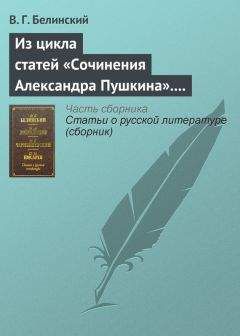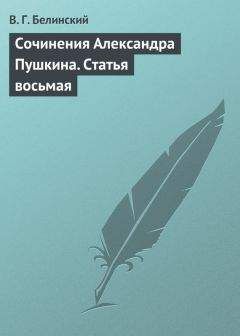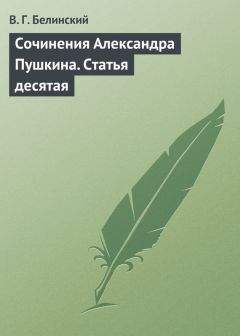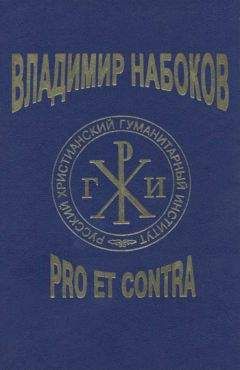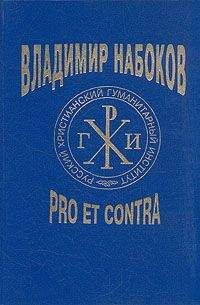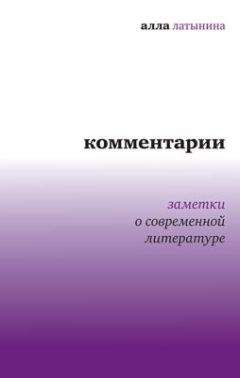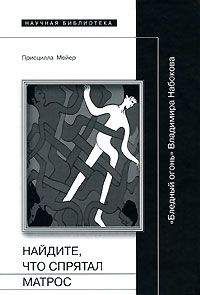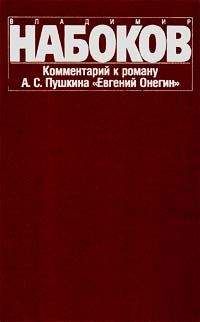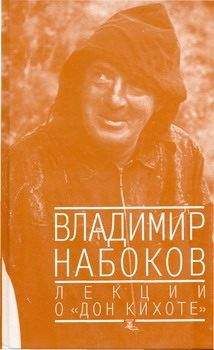Владимир Набоков - Комментарии к «Евгению Онегину» Александра Пушкина
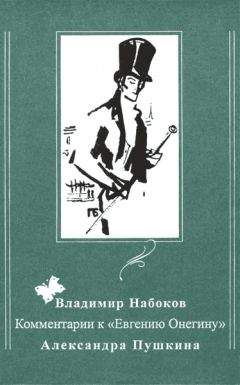
Скачивание начинается... Если скачивание не началось автоматически, пожалуйста нажмите на эту ссылку.
Жалоба
Напишите нам, и мы в срочном порядке примем меры.
Описание книги "Комментарии к «Евгению Онегину» Александра Пушкина"
Описание и краткое содержание "Комментарии к «Евгению Онегину» Александра Пушкина" читать бесплатно онлайн.
Комментарии В. В. Набокова освещают многообразие исторических, литературных и бытовых сторон романа. Книга является оригинальным произведением писателя в жанре научно-исторического комментария. Набоков обращается к «потаенным слоям» романа, прослеживает литературные влияния, связи «Евгения Онегина» с другими произведениями поэта, увлекательно повествует о тайнописи Пушкина.
Предназначена для широкого круга читателей и в первую очередь — для преподавателей и студентов гуманитарных вузов, а также для учителей и учащихся средней школы.
XXXIII
There is no answer. He sends a new missive.To the second, to the third letter —
there is no answer. He drives out to some
4 reception. Hardly has he entered — there she is
coming in his direction. How severe!
He is not seen, to him no word is said.
Ugh! How surrounded she is now
8 with Twelfthtide cold!
How anxious are to hold back indignation
her stubborn lips!
Onegin peers with a keen eye:
12 where, where are discomposure, sympathy,
where the tearstains? None, none!
There's on that face but the imprint of wrath...
XXXIV
lest husband or monde guess
the escapade, the casual foible,
4 all my Onegin knows....
There is no hope! He drives away,
curses his folly —
and, deeply plunged in it,
8 the monde he once again renounces
and in his silent study comes to him
the recollection of the time
when cruel chondria
12 pursued him in the noisy monde,
captured him, took him by the collar,
and shut him up in a dark hole.
XXXV
he started reading. He read Gibbon,
Rousseau, Manzoni, Herder,
4 Chamfort, Mme de Staël, Bichat, Tissot.
He read the skeptic Bayle,
he read the works of Fontenelle,
he read some [authors] of our own,
8 without rejecting anything —
the “almanacs” and the reviews
where sermons into us are drummed,
where I'm today abused so much
12 but where such madrigals addressed tome
I used to meet with now and then:
e sempre bene, gentlemen.
XXXVI
were far away;
chimeras, desires, sorrows
4 kept crowding deep into his soul.
Between the printed lines
he with spiritual eyes
read other lines. It was in them
8 that he was utterly absorbed.
These were the secret legends of the heart's
dark ancientry;
dreams unconnected
12 with anything; threats, rumors, presages;
or the live tosh of a long tale,
or a young maiden's letters.
XXXVII
of feelings and of thoughts he falls,
while before him Imagination
4 deals out her motley faro deck.
Now he sees: on the melted snow,
as at a night's encampment sleeping,
stirless, a youth lies; and he hears
8 a voice: “Well, what — he's dead!”
Now he sees foes forgotten,
calumniators, and malicious cowards,
and a swarm of young traitresses,
12 and a circle of despicable comrades;
and now a country house, and by the window
sits she... and ever she!
XXXVIII
that he almost went off his head
or else became a poet. (Frankly,
4 that would have been a boon, indeed!)
And true: by dint of magnetism,
the mechanism of Russian verses
my addleheaded pupil
8 at that time nearly grasped.
How much a poet he resembled
when in a corner he would sit alone,
and the hearth blazed in front of him,
12 and he hummed “Benedetta”
or “Idol mio,” and into the fire
dropped now a slipper, now his magazine!
XXXIX
winter already was resolving;
and he did not become a poet,
4 he did not die, did not go mad.
Spring quickens him: for the first time
his close-shut chambers, where he had
been hibernating like a marmot,
8 his double windows, inglenook —
he leaves on a bright morning,
he fleets in sleigh along the Neva's bank.
Upon blue blocks of hewn-out ice
12 the sun plays. In the streets
the furrowed snow thaws muddily:
whither, upon it, his fast course
XL
have guessed already. Yes, exactly:
apace to her, to his Tatiana,
4 my unreformed eccentric comes.
He walks in, looking like a corpse.
There's not a soul in the front hall.
He enters the reception room. On! No one.
8 A door he opens.... What is it
that strikes him with such force?
The princess before him, alone,
sits, unadorned, pale, reading
12 some kind of letter,
and softly sheds a flood of tears,
her cheek propped on her hand.
XLI
in this swift instant who would not have read!
Who would not have the former Tanya,
4 poor Tanya, recognized now in the princess?
In throes of mad regrets,
Eugene falls at her feet;
she gives a start,
8 and is silent, and looks,
without surprise, without wrath, at Onegin....
His sick, extinguished gaze,
imploring aspect, mute reproof,
12 she takes in everything. The simple maid,
with the dreams, with the heart of former days
again in her has resurrected now.
XLII
and, not taking her eyes off him,
does not withdraw
4 her limp hand from his avid lips....
What is her dreaming now about?
A lengthy silence passes,
and finally she, softly:
8 “Enough; get up. I must
frankly explain myself to you.
Onegin, do you recollect that hour
when in the garden, in the avenue, fate brought us
12 together and so meekly
your lesson I heard out.
Today it is my turn.
XLIII
I was, I daresay, better-looking,
and I loved you; and what then, what
4 did I find in your heart?
What answer? Mere severity.
There wasn't — was there? — novelty for you
in a meek little maiden's love?
8 Even today — good heavens! — my blood freezes
as soon as I remember
your cold glance and that sermon.... But I do not
accuse you; at that awful hour
12 you acted nobly,
you in regard to me were right,
to you with all my soul I'm grateful....
XLIV
far from vain Hearsay,
I was not to your liking.... Why, then, now
4 do you pursue me?
Why have you marked me out?
Might it not be because I must
now move in the grand monde;
8 because I have both wealth and rank;
because my husband has been maimed in battles;
because for that the Court is kind to us?
Might it not be because my disrepute
12 would be remarked by everybody now
and in society might bring you
scandalous honor?
XLV
you've not forgotten yet,
then know: the sharpness of your blame,
4 cold, stern discourse,
if it were only in my power
I'd have preferred to an offensive passion,
and to these letters and tears.
8 For my infantine dreams
you had at least some pity then,
at least consideration for my age.
But now!... What to my feet
12 has brought you? What a trifle!
How, with your heart and mind,
be the slave of a trivial feeling?
XLVI
a wearisome life's tinsel, my successes
in the world's vortex,
4 my fashionable house and evenings,
what do I care for them?... At once I'd gladly
give all the frippery of this masquerade,
all this glitter, and noise, and fumes,
8 for a shelfful of books, for a wild garden,
for our poor dwelling,
for those haunts where for the first time,
Onegin, I saw you,
12 and for the humble churchyard where
there is a cross now and the shade
of branches over my poor nurse.
XLVII
so near!... But my fate is already
settled. Imprudently,
4 perhaps, I acted.
My mother with tears of conjurement
beseeched me. For poor Tanya
all lots were equal.
8 I married. You must,
I pray you, leave me;
I know: in your heart are
both pride and genuine honor.
12 I love you (why dissimulate?);
but to another I belong:
to him I shall be faithful all my life.”
XLVIII
Подписывайтесь на наши страницы в социальных сетях.
Будьте в курсе последних книжных новинок, комментируйте, обсуждайте. Мы ждём Вас!
Похожие книги на "Комментарии к «Евгению Онегину» Александра Пушкина"
Книги похожие на "Комментарии к «Евгению Онегину» Александра Пушкина" читать онлайн или скачать бесплатно полные версии.
Мы рекомендуем Вам зарегистрироваться либо войти на сайт под своим именем.
Отзывы о "Владимир Набоков - Комментарии к «Евгению Онегину» Александра Пушкина"
Отзывы читателей о книге "Комментарии к «Евгению Онегину» Александра Пушкина", комментарии и мнения людей о произведении.







